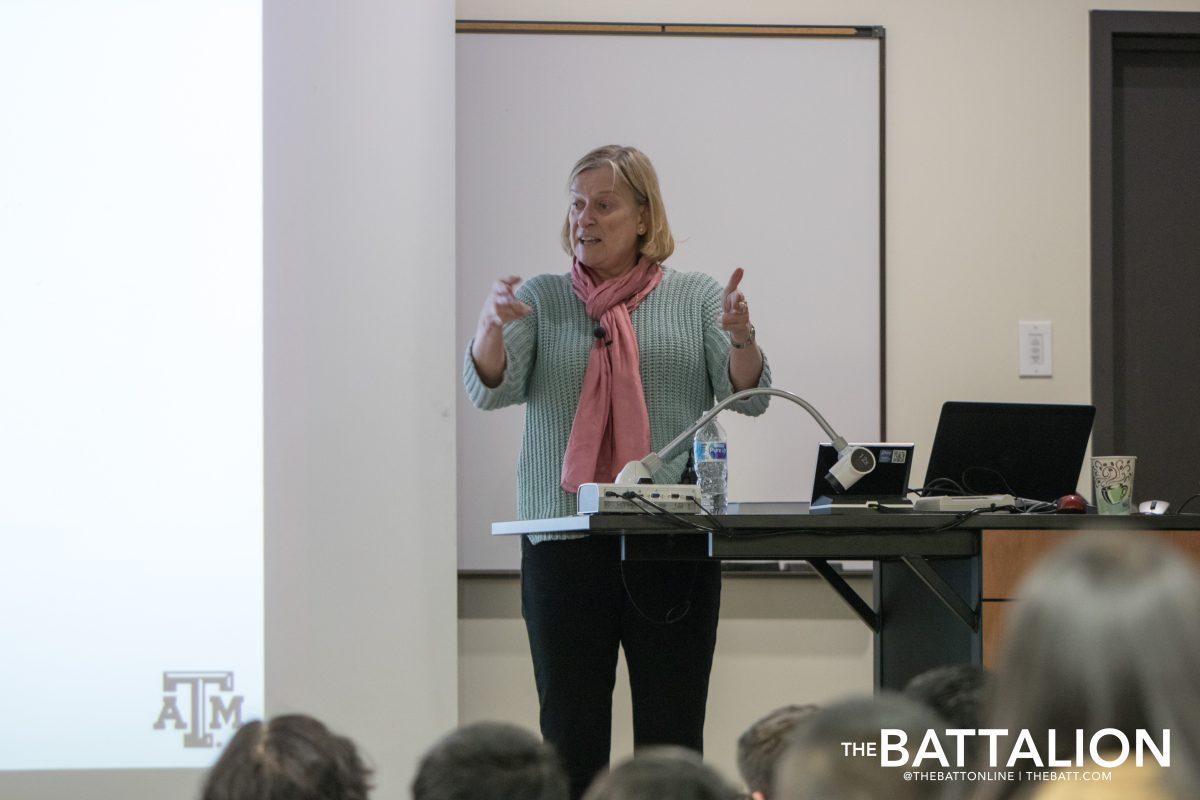With the fall 2021 semester drawing near, Texas A&M professors across campus are wrapping up their preparations for the return to in-person classes following three primarily virtual semesters.
For marketing professor Altay Dikec, balancing the hybrid class option last year was difficult because of the two demographics of students — those in-person and those who attended class online. He said he adapted his classrooms to fit in a horseshoe shape so he could engage with students who were in the classroom and who were at home.
“From the instructor’s point of view, it was really difficult to manage those classes because there were actually two different groups of students, so every time we had to look back and forth, back and forth, so that was a big challenge,” Dikec said. “[For the in-person students,] I asked them to sit everybody to the right side of the class. Then I stood on the left side of the classroom so I could see both in-person and online students.”
Dikec said he also had to adapt assignments and tests to fit the needs of both groups, including moving exams to an online format and allowing students 48 hours to complete their test.
As a relationship-oriented professor, Dikec said he is looking forward to in-person interactions to establish meaningful connections with students regarding class topics and outside world experiences.
“The biggest challenge was when you’re in a classroom environment, students interact with the professor and with each other,” Dikec said. “When there is a discussion, there is this energy. There is this positive mood that everybody joins the discussion, and it’s really amazing and easy to build relationships and go deep about the content with really great discussions.”
With the delta variant running its course around the world, Dikec said the main concern faculty and students may have is contracting COVID-19 while on campus.
“The only thing is health concerns for mostly students who are not vaccinated, or for people, family members who can’t be vaccinated, because we can carry the virus to our family,” Dikec said.
During the online semesters, Dikec said he had to adapt his classes by cutting out a project because it required going out in the community and engaging with businesses.
“Motivation was a big issue because students are isolated,” Dikec said. “They couldn’t meet with many people — they were always at home. I think there was a big increase in the percentage of students who were unprepared before in class, like not completing the assignments or not reading the articles or book chapters before coming to class.”
Dikec said during these semesters he saw less motivation in students and sought to help those having a hard time transitioning. He gave students his phone number as a support line and said he helped by sharing his personal story.
“COVID[-19] time was a very important time for professors to be more understanding, more flexible, because many students were dealing with such a challenge for the first time in their life,” Dikec said. “I did my best to be with them [virtually]. But now, I can be physically with them whenever they need me.”
Striving to create a community-based classroom, psychology and public health professor Idia Thurston said it took much longer to foster this environment over Zoom.
Thurston said while teaching online, she cut out extra material to allow for time to cover key concepts which took longer to master online.
“The main focus was trying to get to the meat and potatoes of information, like what you need to know and not as much of the packaging that really makes teaching the art,” Thurston said. “A lot of those things are the anecdotes and the things you provide in between, [and there] just wasn’t time for that because everything takes longer.”
With moving to in-person classes for the first time in 17 months, Thurston said she is anticipating interactions with students and staff in more ways than just in the classroom, including hallway conversations and office hours.
“It’s amazing how much I never appreciated those small talk, watercooler conversations, just the things that don’t happen in a formal setting that really help build community,” Thurston said. “You might see your student in a hallway and be like, ‘Oh, this thing you talked about in class, this happened and I heard this in the news.’”
Thurston said she believes there will be challenges in relearning how to navigate social relationships during the transition back to in-person.
“I think we all have gotten used to this really quick way of learning how to communicate online,” Thurston said. “We now have to shift to like, you’re talking to people in person and all these things happen and how do we navigate those social relationships?”
Additionally, Thurston said she believes professors will have to exercise grace with students while everyone navigates the changing times and accept the transition back to online learning may have to happen at a moment’s notice.
“Things may change for both students and for the faculty, [and both should exhibit] grace,” Thurston said. “Flexibility is really important that we be open to things changing and don’t be surprised that things change. It’s not because we’re trying to make life harder for students. It’s just that as we get more information, we’re trying to do the best that we can, what we have under the restrictions we have, under laws and rules that exist and govern the decisions that we make.”
Professors comment on full return to campus
August 23, 2021
Photo by Photo by Cristian Aguirre
Professor Paula deWitte addresses the ethical issues faced by the technology industry.
Donate to The Battalion
Your donation will support the student journalists of Texas A&M University - College Station. Your contribution will allow us to purchase equipment and cover our annual website hosting costs.




















